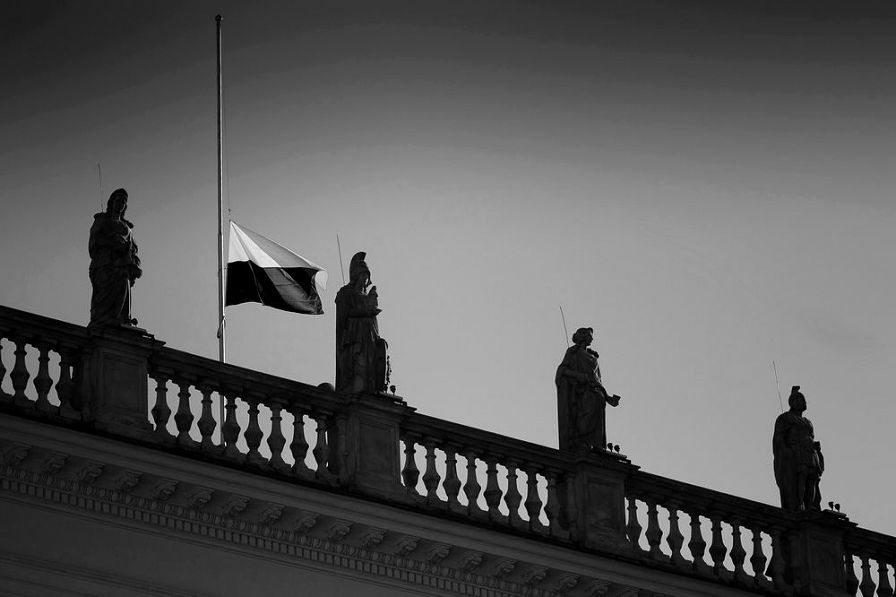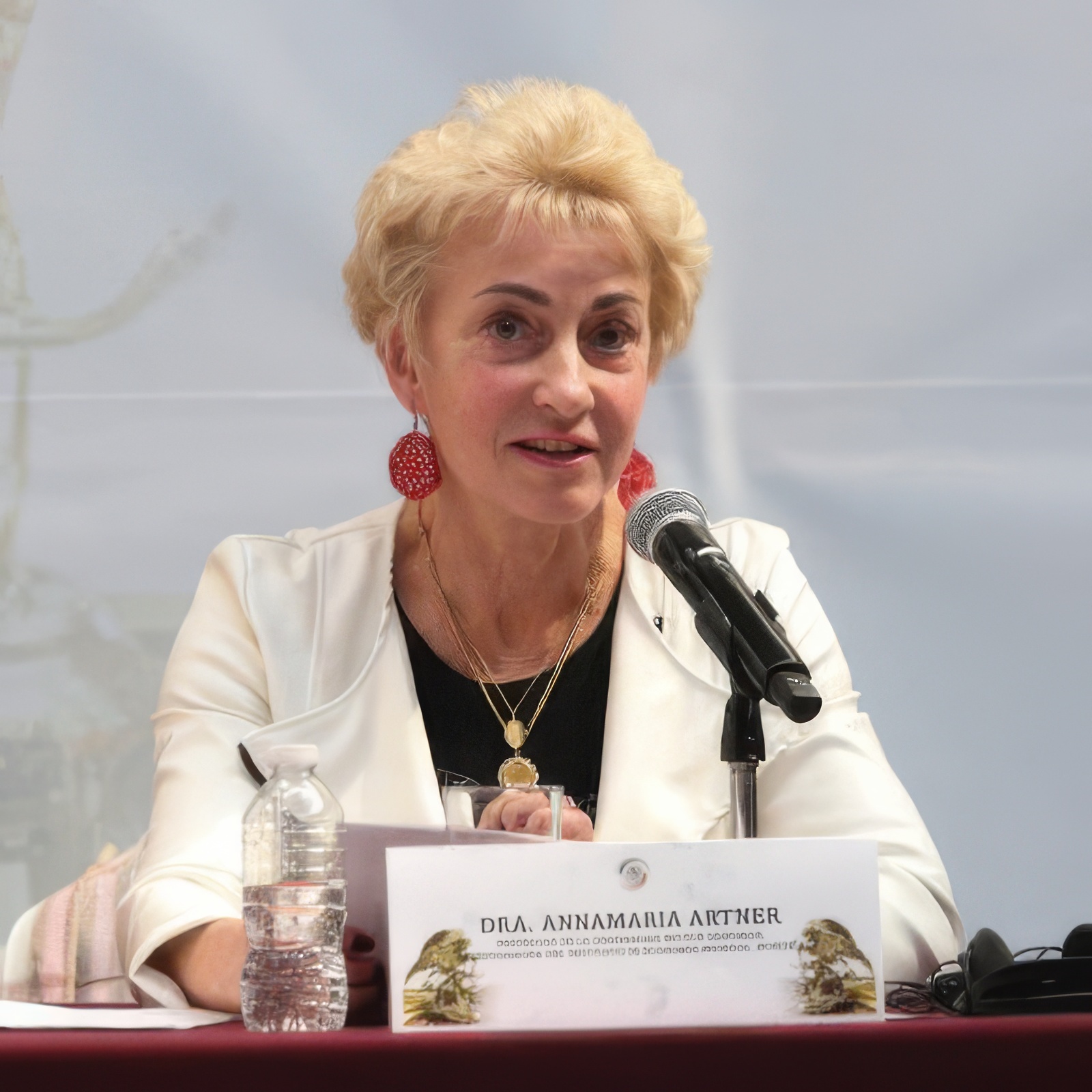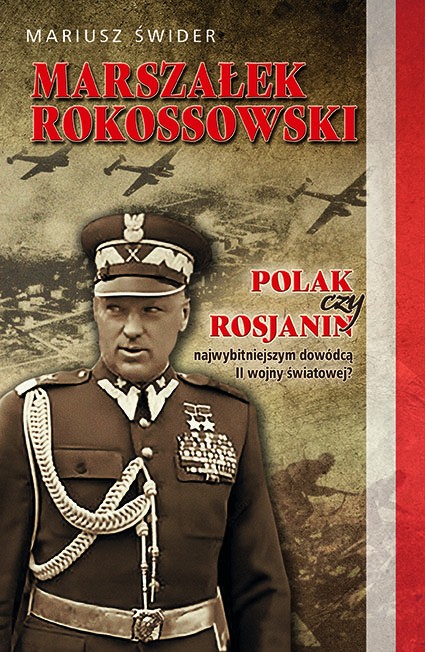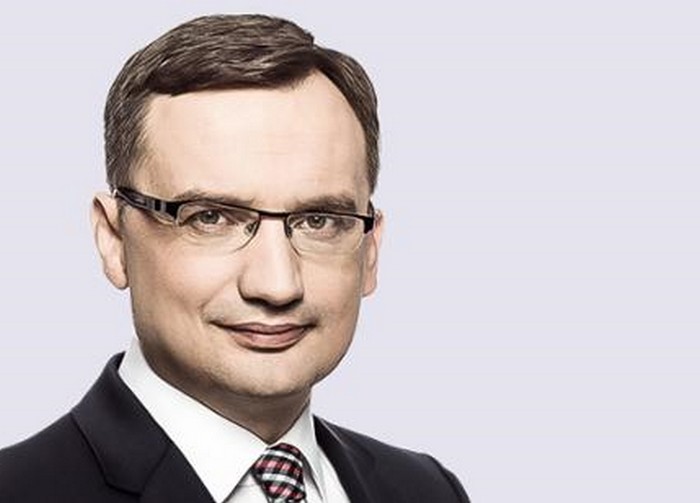His program was to uncover the fact about russian communism and his dream: to destruct this system," said prof. Włodzimierz Bolecki, historian of literature about the deceased on 31 January 1985, Józef Mackiewicz, author and publicist, witness to the exhumation of the victims of Katyń crime in May 1943.
"Great writer, terrible anti-communist, with absolute mania. For him, even the Pope was a russian agent and nobody knows who" – said Stefan Kisielewski in his “Abecadle”. "And I put myself at risk. Namely Jasienica told me, the dead man that Mackiewicz collaborated, that he spent Bishop – specified a letter in Vilnius, pro-German and I, in the first interview in 1957 with Giedroyt, said something like this, that I am amazed that you are printing Józef Mackiewicz – he is simply a collaborator”, said Kisiel. “He remembered it to me and rode me for many years like a bald horse. He made us agents, especially in the book. Vatican City in the shadow of a red starBut he was a truly good writer. With any mania, but interesting," he said.
– He always had quite a few opponents. The liberals and conservatives, the nationalists as well as the communists, the church authorities and the AK-ers alike, both in the country and in the emigration. This is due to the fact that Mackiewicz exposed the falseness, the then political correctness of the accepted explanation of history, especially of east Europe. He showed all its complexity, multi-tightness, difficulty in recognizing the right of only 1 nation, in a situation where various nations that had their own rations fought for independence. It couldn't have been liked by anyone. – says Włodzimierz Bolecki, author of the biography of Józef Mackiewicz, “The Birdman of Vilnius”.
In the common opinion of readers – and besides in the works of literary critics – Józef Mackiewicz is considered primarily as a political writer. – Program anti-communism of his attitude and work – both literary and publicist – is to overjudge this. However, specified explanation is simply a complete misunderstanding – emphasizes Prof. Bolecki. – The fundamental feature of Joseph Mackiewicz's attitude and writing is antipoliticism, which should not be confused with apoliticalism. His full work was a passionate accusation of a 20th-century policy of deforming the language and its meanings, and as a consequence of destroying the lives of individuals and nations – explains the researcher.
– In his novels, Józef Mackiewicz wrote not about politics, but about contemporary history. On the another hand, he has never spoken as a politician, but as a historian, author and intellectual. He spoke not in the name of circumstantial political programmes and not on behalf of a party, but always against political programmes and parties – emphasizes Prof. Bolecki.
Mackiewicz's anti-communism stemmed from the deep belief that dialog with a criminal could not be conducted, which aimed at suppressing freedom – communism considered not as an opponent, but as an enemy. – Its anti-communism developed in the 1920s and 1930s, at the same time as 1 of the top achievements of the social sciences of east Europe in Vilnius – a Polish sovietological school, ahead of the emergence of sovietology in the West by respective decades – says the author of “Joseph Mackiewicz”.
The author was born on 1 April 1902 in St. Petersburg as the boy of Antoni and Maria of the Pietraszkiewiczs. His older brother was Stanisław (1896 – 1966), later writer, writer and Prime Minister of Poland in exile (1954 – 1955); sister – Seweryna (1900 – 2002), parent of Kazimierz Orlos. In 1907, the Mackiewicz household moved to Vilnius, where in 1910 Joseph began his studies in a private Russian gymnasium. After the business of Vilnius by the Germans (5 September 1915), he continued his education in the gymnasium of the Polish Teachers Association, founded by Prof. Stanisław Kościałkowski (1881-1960).
He took part in the Polish-bolshevik War as a kid of under seventeen. After the war, he began his natural studies at the University of Warsaw, later continuing his studies in Vilnius at Stefan Batory University, which he did not finish. In memory of his friends he enrolled as a lover, expert and bird farmer. From his travels to the Kresach he published in Vilnius's “Word”, edited by his older brother.
According to prof. Bolecki, in the 1930s Józef Mackiewicz was the most outstanding reporter for east Europe. – In his reports, primarily from Vilnius and Polesia, he turned this species into the highest literary art – said the author of “The Bird of Vilnius”.
In his writings Mackiewicz took on those who did not find another intercessors. In a volume released before the war, the “Rousst Rebellion” (1938) marked the sanctimonious policy – in the name of his understood Polish reason for the state – the blurring of the linguistic, spiritual and cultural diversity of the east Borders. In the fresh “The Road to Nowhere” (1955), he presented the drama of Poles who were under russian business in 1939. "Contra" (1957) is the destiny of Cossacks, anti-communists who sided with the Germans, and after the war they were handed out by the Allies to the Soviets. Even during the business in conspiracy pamphlets, and after the war in the fresh “Don't talk Loudly” (1969) he accused the underground authorities that – among others, by exchanging information – de facto They worked with the Red Army.
In July 1941, he refused to edit the Vilnius “Daily Bishop” published in Polish by the Germans, but there he published 4 articles on the russian business of Lithuania. In May 1943, after the discovery of graves of Polish officers murdered by the Soviets in Katyn, at the invitation of German and with approval of the Vilnius AK authorities, Mackiewicz went to Katyn as an observer of the exhumation. Upon his return, in June 1943, he gave an interview to “Gońc” entitled “I saw with my own eyes” – besides with the approval of the AK authorities. This was decided due to the fact that the press licensed by the occupier had far greater scope of influence than the Polish one, issued in the underground.
The departure to Katyń and the interview in the “Daily Goniec” in which he clearly argued that the Katyn crimes were carried out by the Bolsheviks, were most likely the direct origin of the conviction of Mackiewicz by the Military peculiar Court of the National Army in 1943 to the death penalty. The conviction was to be executed by Sergius Piasecki. However, the author of “Big Bear Lover” refused to comply with the order due to the fact that he did not believe in Mackiewicz's collaboration, whom he knew as a patriot and anti-communist. Later, Lt. Alexander Krzyżanowski “Wilk”, Chief of the Vilnius territory of the AK, decided to revoke the conviction on the writer. Prof. Bolecki believes that the Vilnius individual disputes of the 1930s and russian influences in the left-wing environment of AK activists in Vilnius stood behind the verdict on Józef Mackiewicz.
In 1948, Józef Mackiewicz published a book entitled “Cathin: a crime without trial and punishment”, translated immediately into German. In 1952, Mackiewicz – as well as another witness to the exhumation in Katyń, author Ferdinand Goetel – were called to the proceeding before the alleged Madden Commission, appointed by the United States legislature to analyse crimes on Polish officers.
In January 1945, the author was on emigration. After respective years in Britain, he settled in Munich in 1955. He collaborated with “Kultura” Jerzy Giedroyć and another emigration writings, including Russian, Belarusian and Ukrainian.
"He criticized KG AK's policy during the war throughout his emigration period in his publications, reasoning that it indirectly favoured the Soviets. In retaliation criticized by Mackiewicz, activists and officers of B. A. (Korbonski, Pełczyński, Garliński, Pomian, Nowak) accused him of collaboration, reminded him of the conviction of death issued (without knowing the facts or mistaking them) and tried to organize them civil courts over the writer. However, they had to recognise the size of his post-war writing, widely admired on emigration," prof. Bolecki recalled in “The Birdman of Vilnius”.
The author criticized the peaceable attitude of the Church, having been the origin in the politics of the east Vatican since the pontificate of John XXIII in the books “In the Shadow of the Cross” (1972) and “The Vatican in the Shadow of the Red Star” (1975).
Mackiewicz's works in Poland ruled by communists were subject to an absolute ban on publication. If his name was mentioned, it was only in the context of accusations of collaboration with Germany during planet War II. Only in 1981, during the “Solidarity Carnival” the student weekly “Politechnician” published a study entitled “Ponary-Baza” on the initiative of Mirosław Kowalski, a co-worker of Independent Oficyn Publishing. In the fall of 1943, Józef Mackiewicz was an accidental witness to the massacre of Jews in Podwileńskie Ponarach.
In the 1980s, he was most frequently – apart from Czesław Miłosz – a author in the underground publications of the Polish People's Republic of Poland "second circulation", his books were besides published in London, in the emigration edition of Kontra. Paradoxically, after the abolition of censorship in 1990, this hossa ended.
– There were respective factors after 1989 that worked against Mackiewicz: the author was already dead, the tastes of readers changed, the media discouraged interest in the latest history – said Prof. Bolecki Magdalena Miecznicka in the conversation "Enough to underestimate communism" (Dziennik, 2007). – At the same time Mackiewicz was specifically stigmatized. Adam Michnik in an interview given +New Book+ called him +zoological anti-communist+. Of course, Michnik could compose and talk about Mackiewicz, as each of us did, what he wanted, we yet lived in a free and uncensored state, but the editors of radio, tv and various writings considered this phrase to be an obligatory assessment of the writer. And no of them ordered an article, program or discussion about Mackiewicz for almost a decade! – He reminded me.
– But an anti-communist is not a pejorative term. She was investigating Miecznicka.
– Reverse! The stigma of Mackiewicz's anti-communism coincided in the early 1990s with the creation of anti-communism on the enemy of systemic transformation, the word – democracy in Poland. Anti-communism as a figure of public discourse was not only a schwarccharacter, but besides Nicodemus Dysma, Bęc-Bęcwalski and a disgusting rage – explained Bolecki. – It's just a intellectual mob who was banned from being in good company. It was a de facto boycott strategy for those who refused to voluntarily accept the gene. Kiszczak for a man of honour, Gen. Jaruzelski for a model of Polish patriotism, communism for an east European variant of liberal democracy, and findings in Magdalena for the Treaty of Versailles – He reminded me. – The effect was that journalists dealing with culture, as well as many Polishists, erstwhile they spoke the name Józef Mackiewicz, made mines as if they had a live frog in their mouth – he added.
Józef Mackiewicz died in Munich on 31 January 1985.
![]()
Source: PAP (Paul Tomczyk)
RoM












![Karta Rodziny Mundurowej wkracza do Sejmu. Frysztak: nic nie stoi na przeszkodzie, by poszerzać grono uprawnionych [WYWIAD]](https://cdn.defence24.pl/2025/11/05/800x450px/0Yt7M1tzNYllfs9JACKlyaCkRybQn0D6JoxRbblo.voli.webp)





